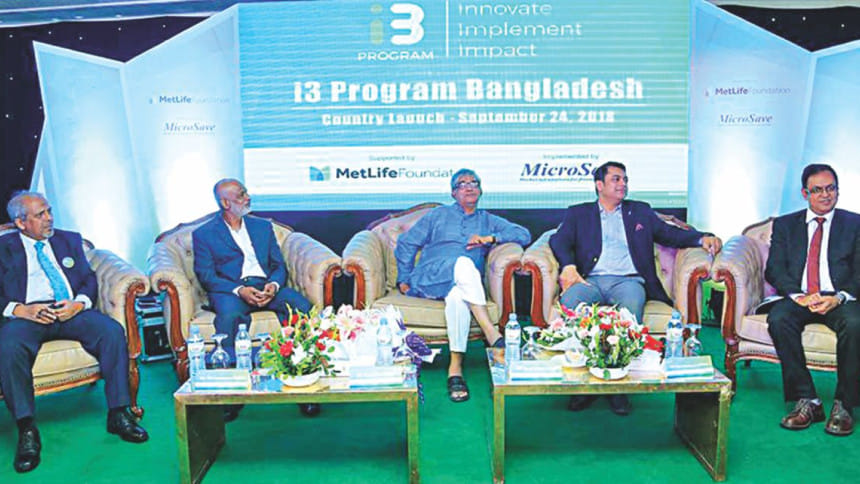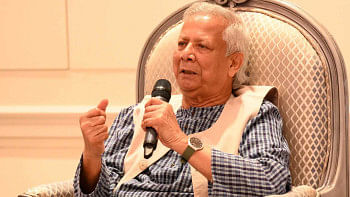Financial inclusion scheme targets 2.5 lakh people

Metlife Foundation and MicroSave yesterday jointly launched a financial inclusion programme in Bangladesh aiming to integrate 2.5 lakh low- and middle-income people into the formal economy.
The programme titled “i3” (innovate, implement and impact) was unveiled at an event at the Pan Pacific Sonargaon hotel in Dhaka.
MetLife Foundation has funded the initiative under its “Leveraging Technology for Meaningful Financial Inclusion in Bangladesh, China, Malaysia and Vietnam” programme.
According to MetLife Foundation, Bangladesh accounts for more than 8 percent of the total mobile money account worldwide and the pattern of transactions suggests that the mobile financial services (MFS) market is yet to move beyond basic transactions—many of which are conducted only for cash-in and cash-out and very little used for product buying.
About 5 crore people in Bangladesh use financial services through mobile phones and 60 percent of the population is unbanked, said the foundation.
Speaking at the event, ICT and banking sector experts recommended utilising the MFS to achieve the financial inclusion goal of MetLife Foundation and MicroSave.
Mustafa Jabbar, minister for telecom and ICT, said Bangladesh is a role model in terms of using digital services to improve the lives of ordinary people.
Still, there are some challenges in the system, he said.
He urged the Bangladesh Bank to roll out interoperability facilities as early as possible in order to accelerate financial inclusion and promote innovation.
As part of the government's commitment to introduce policies aimed at advancing financial inclusion, the Access to Information (a2i) programme of the Prime Minister's Office is currently in the process of drafting a National Financial Inclusion Strategy, the minister said.
Syed Almas Kabir, president of the Bangladesh Association of Software and Information Services, said the i3 initiative will help provide necessary guidance to innovators.
Manoj K Sharma, regional director for Asia at MicroSave, an international consulting firm, said although the MFS in Bangladesh has been very successful, it is time to build upon this success story and translate it into a larger play around financial inclusion.
“The problem is that loans of a small amount are very difficult to give and savings of a small amount are very difficult to collect.”
He added that banking transaction costs are so high that it is not economically feasible to provide services to a customer who is dealing in small amounts of money.
Sharma said Bangladesh went past Kenya in the MFS, both in terms of volume and value.

 For all latest news, follow The Daily Star's Google News channel.
For all latest news, follow The Daily Star's Google News channel. 



Comments